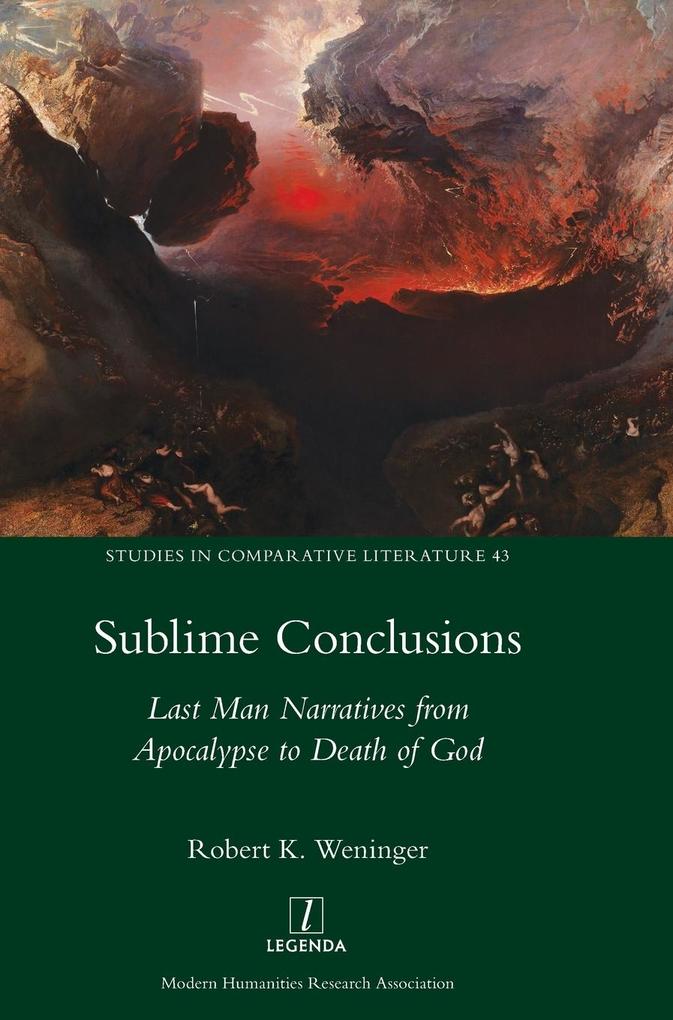
Zustellung: Mi, 08.01. - Sa, 11.01.25
Versand in 1-2 Wochen
VersandkostenfreiBestellen & in Filiale abholen:
One writer, Mary Shelley, inaugurated two of the three paradigms through which human beings imagine, with panic or pleasure, the end of their species. Complementing her visions of a world-encompassing natural plague (The Last Man, 1826) and man-made technological self-eradication (Frankenstein, 1818), the third - and oldest - paradigm of how to depict humankind's demise is the religious notion of Apocalypse, God's Day of Reckoning. Through in-depth philosophical and theological contextualization of the German, French and British literary settings of the apocalyptic tradition around 1800, Sublime Conclusions chronicles the transition from theism and deism to atheism and the 'Death of God' on which, Weninger contends, Shelley's novels - and hence modern science fiction in general - are premised. A tour de force of comparative methodology, Weninger's transdisciplinary approach is as wide-ranging as it is meticulous, interweaving the manifold discourses of catastrophe in literary history, art and film history, philosophy and theology, as well as the history of science and science fiction, across more than two centuries of European intellectual history from Voltaire's mid-eighteenth-century response to the earthquake of Lisbon to Günther Anders's presaging, in the wake of Hiroshima, humankind's extinction through nuclear Armageddon.
Robert Weninger is Emeritus Professor of German and Comparative Literature at King's College London.
Robert Weninger is Emeritus Professor of German and Comparative Literature at King's College London.
Inhaltsverzeichnis
Selected Table of Contents to come.
Produktdetails
Erscheinungsdatum
25. September 2017
Sprache
englisch
Seitenanzahl
590
Reihe
Studies In Comparative Literature
Autor/Autorin
Robert K. Weninger
Verlag/Hersteller
Produktart
gebunden
Gewicht
1186 g
Größe (L/B/H)
250/175/36 mm
Sonstiges
HC gerader Rücken kaschiert
ISBN
9781910887219
Entdecken Sie mehr
Bewertungen
0 Bewertungen
Es wurden noch keine Bewertungen abgegeben. Schreiben Sie die erste Bewertung zu "Sublime Conclusions" und helfen Sie damit anderen bei der Kaufentscheidung.









